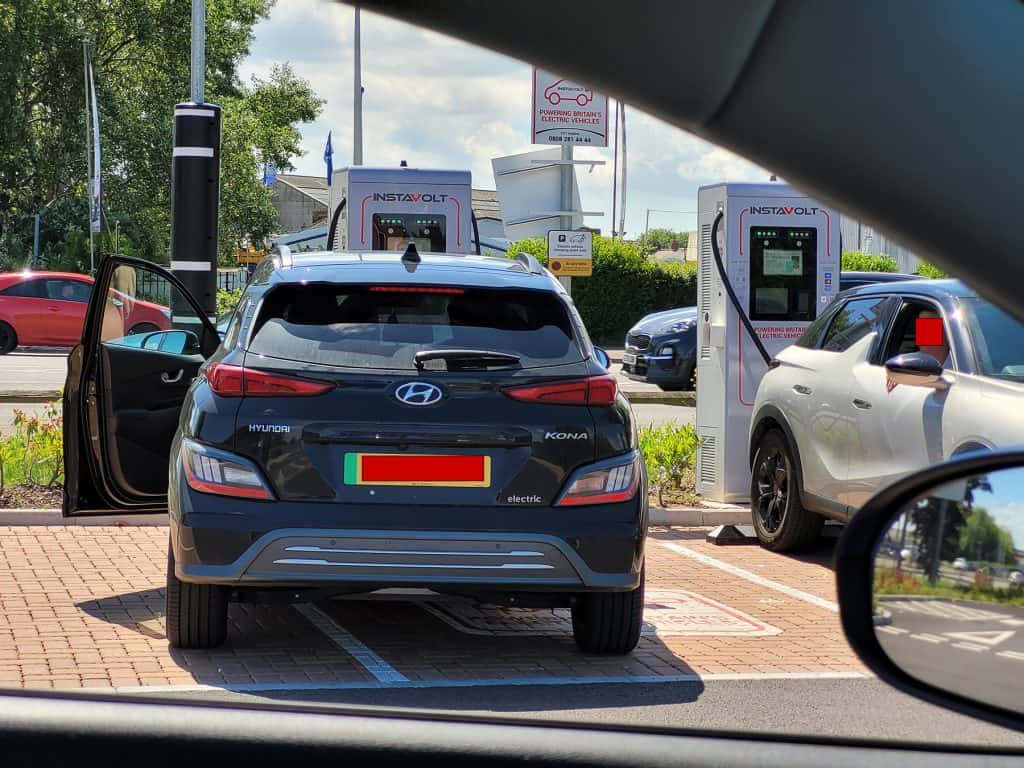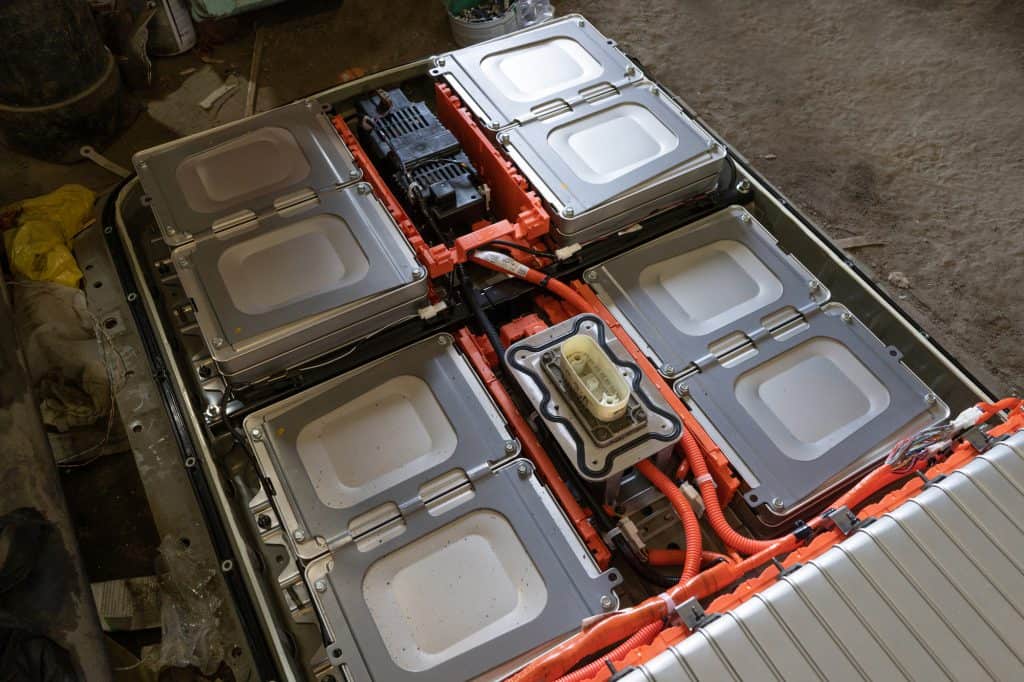Over the past decade, electric vehicles have moved from the fringes of the automotive world firmly into the mainstream imagination. They are yet to take their place as the majority stakeholder in any country’s automotive landscape — with the notable exception of Norway, of course — but are well on the way, with more models from more big-name auto makers emerging each year.
One current issue with EVs, however, is the sale price. We can easily be convinced by the substantial evidence of them being cheaper to run, but that initial sticker-price hurdle is still hard to overcome. For this reason, people are now considering starting their EV driving life with a cheaper used model.
Given that for most people navigating the world of used gasoline/diesel car sales is tricky enough, the relatively unknown world of all-electric cars is even more baffling. For one thing, how are we to look at EV mileage? Does it matter on an EV as much as it does on a car with an internal combustion engine? This is today’s core question.
EV Mileage – How Far Can They Go?

Consumer Reports in 2019 said that you should expect a typical EV to deliver about 200,000 miles of life. Elon Musk has given more generous ratings of 300,000-500,000 miles on some of his own cars, and adds that Teslas are on a journey to have a million-mile life. Is that to be the target for all EVs, too?
Assuming you drive about the annual average mileage in the US, which is about 13,500 miles, then 200,000 miles as a lifespan means just under 15 years of happy driving. When you arm yourself with this information about the current average lifespan of an EV, you might then think you can easily get a grip on what kind of mileage would be your upper limit when choosing a used model.
The truth is that it’s really not that simple.
Question: Does Mileage on an EV Really Matter at All?
When it comes to combustion engine cars, our chief worry is wear and tear. Cars with 100,000+ miles on the odometer worry us because they’re crossing thresholds of mechanical entropy that are impossible to deny. Some regular cars, especially those made by companies like Toyota and Honda, have long been shown to have lifespans well over 200,000 miles with all the main components still working fine.
Electric vehicles, however, aren’t built the same way. They don’t have an internal combustion engine, and therefore don’t have the cylinders, belts, hoses and other moving parts that a traditional engine needs. With the insides of an EV being largely “unmoving” save for the electric motors that turn the wheels, wear and tear doesn’t happen in the same way.
So, EVs are impervious to wear and tear? No. They are certainly lower maintenance thanks to not needing oil and filter changes and such, but they have their own issues. Below, we’re going to talk about what high mileage really means both from a buyer and a seller’s perspective.
Buyers: How Much EV Mileage Is Too High?

The first thing to do as a buyer is to forget what you think you know about mileage. Some very basic and fundamental notions to do with high mileage and the quality of cars will transfer from your days driving gasoline/diesel cars, but EVs are in many ways too different an animal to compare so directly.
It’s All About the Battery
When looking at older EV such as early-model Nissan Leafs, the primary concern you should have is the state of the battery. On a gasoline car, you might ask to see a full-service history to see everything that has been done to the car in all its years. Such a history is somewhat boring on an EV because the maintenance schedules are so empty: brakes, alignment, tire rotation, cabin/air filter replacements, coolant flushing — that’s about it.
At the heart of it all is the battery. You need to understand how its capacity has changed since the car was new. This is something we never think of with gasoline cars, since a common 12-volt lead-acid battery is cheap and easy to replace. A giant 60kWh battery in an EV, however, is absolutely not cheap to replace.
Reduced battery capacity means reduced overall range and that’s the key with your used EV. You’ll also have to think about how much longer the battery has left. Below are some OEMs apparently predict as the lifespan of their batteries. You can usually tell from the warranty:
- Nissan Leaf – 100,000 miles or 8 years
- Kia Soul EV – 100,000 miles or 7 years
- Jaguar I-Pace – 100,000 miles or 8 years
- BMW i3 – 100,000 miles or 8 years
- Audi e-tron – 99,419 miles or 8 years — points for being specific!
- Seat Mii Electric – 100,00 miles or 8 years
You can easily see a pattern emerging here. Most OEMs expect the battery will last for 100,000 miles or 8 years. Does that mean that you should never buy a pre-owned EV with more than 100,000 miles on the odometer? By no means.
Website torquenews.com featured an owner of a Chevy Bolt who has confirmed that upon reaching 100,000 miles in their Bolt, they have noticed a very small loss in battery capacity of just 5.2 percent. That was calculated over 3 years in which 100,000 miles was achieved. What this goes to show is that batteries are becoming increasingly robust.
Other Considerations
As a buyer, you’ll still need to see the car’s service history, limited though it may be. You should also ask about any problems with software. Since much of an EVs operation is dependent on its computer and electronics, the health and operation of these will be important on higher mileage cars. Is the infotainment screen working? Can it receive OTA updates (if applicable)? Are there any apparent bugs or glitches?
Finally, very often the depreciation level on EVs means that buying a second-hand model is extremely good value. Many see this is as an acceptable risk for things like the battery health. If you can snap up an EV at about the third of its original resale value, then you might not mind somewhere down the line investing in a new battery.
Sellers: Is the Mileage Too High to Sell?

If you’re a seller looking to shift an old electric vehicle, then you shouldn’t let high mileage get in your way. As we’ve said above, the mileage on an EV is far lesser an indicator of health than it is on a gasoline or diesel car. It’s increasingly important for sellers to instead use marketing tools to present the car for sale with clear information (such as about battery capacity/health), so that the buyer can easily make a decision.
Keep Service Records
Just as you would with any car, make sure to keep safe and any and all service and maintenance records. It’s important to show that any vehicle, including an EV has been kept in good order.
Keep Track of Battery and Range
Buyers of used electric cars will certainly be very concerned about the battery’s health and the range of the car. If you can show that the battery capacity has been retained and that the car will still get most of the range that it used to get, then mileage doesn’t have to matter at all.
As for battery health, this is an important consideration. What some buyers are worried about it purchasing a second-hand EV, and the battery failing or needing replacement within a couple of years. If the car is outside its warranty, then a replacement battery can be very expensive, usually many thousands of dollars.

The more you can tell the buyer about battery capacity, health, range and charge times, the more likely you are to assuage those fears. You might wonder to yourself if it’s wondering investing in a new battery and then selling at a higher price to offset some of that. A brand-new battery would be a big selling point, it’s true, but it’s very unlikely to be worth the cost.
Right now, many EVs depreciate greatly in their first few years of life. It’s not a good idea to further cut into that margin by investing in a seriously expensive component. Overall, it’s better to take the chance that your buyer will like your depreciated price and be willing to take the risk.
Conclusion: Mileage Does Matter, but Perhaps Not As Much As You Think
It would be wrong to say that mileage doesn’t matter when looking to buy a used EV. When the risk of a very expensive battery replacement is looming, it’s understandable cause for concern. If buyers know to ask the right questions about battery health and range, and sellers can provide honest and detailed answers, then there’s no reason a higher mileage EV with 80,000-100,000 miles on the clock already couldn’t become part of a great sale.
EVs aren’t as susceptible to wear and tear as most gasoline and diesel cars, but they are still man-made machines motoring towards entropy every minute of every day. If you understand where to look for the problems, then you can avoid the pitfalls and enjoy the fantastic bargains on the EV used market. As the years push on and more people move on to their second or third EV, the pre-owned market will only grow in strength and reliability.